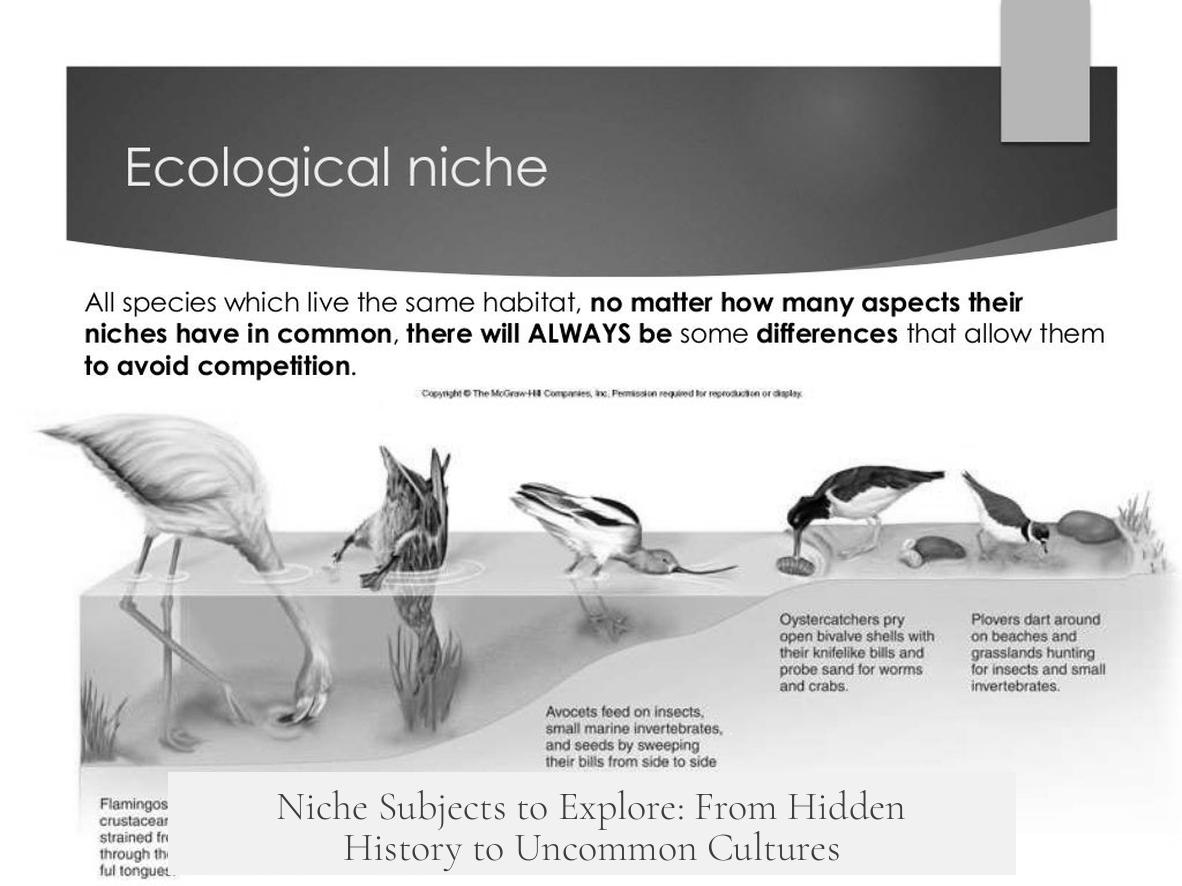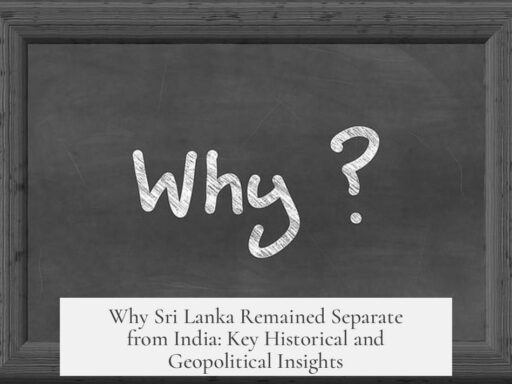Recommended niche subjects or topics span a broad range of historical and thematic areas. Many focus on lesser-known events or perspectives, offering rich material for exploration beyond common narratives.

The Crusades offer obscure angles such as the Albigensian Crusade, a violent campaign against the Cathars in southern France. It is a subject rarely discussed in mainstream history but is well-covered in specialized podcasts like Sharyn Eastaugh’s History of the Crusades. The broader Crusades narrative also benefits from Dan Carlin’s immersive storytelling in his Hardcore History series.
World War I studies often overlook the Alpine Front where Italy fought Austria-Hungary. Mark Thompson’s The White War provides detailed insights into this mountainous conflict, revealing the harsh conditions and strategic challenges faced.

Naval history in the 16th century Mediterranean is another recommended niche. Roger Crowley’s works illuminate the Christian-Muslim power struggle and early European imperialism. Books like Empires of the Sea and Conquerors explore these maritime conflicts and the Portuguese expansion into the Indian Ocean.
Modern African history is underrepresented in popular discourse, but the ongoing Congo Wars are a crucial subject. Few Western audiences know beyond familiar African historic highlights like Mali or Zulu kingdoms. This region reveals complex post-colonial struggles and regional geopolitics.

Mongolian military history, particularly through the campaigns of the general Subutai, offers a unique lens on effective warfare. His undefeated record and use of intelligence and psychological tactics reflect exceptional strategic genius during the 13th century Mongol expansions.
The Three Kingdoms Period of China is another dramatic niche. It features political intrigue, renowned strategists like Zhuge Liang, and psychological warfare exemplified by the Empty Fort Strategy. These stories combine history with legend, offering profound lessons on strategy and leadership.

Ancient civilizations such as the Aztecs remain a rich area. Frances Berdan’s The Aztecs of Central Mexico: An Imperial Society outlines their complex societal structures and imperial reach, adding depth to understanding pre-Columbian Americas.
Central Asian history ties into Sufism and Islamic mysticism. The works of Edward Allworth and studies on cities like Samarkand expose connections between religious lineages and the evolution of Islamic thought in the region.

Exploring religious beliefs and folklore reveals social values and historical mindsets. Thomas DuBois’s research into Nordic paganism and early medieval Christianity delivers insight into the spiritual world of the Viking Age.
Polar exploration history in the 19th and 20th centuries captures the endeavors of explorers like Nansen and Amundsen. These expeditions combine adventure, science, and indigenous cultural documentation, such as Knud Rasmussen’s Thule Expeditions.

Other intriguing topics include the Greco-Bactrian and Indo-Greek kingdoms, whose Hellenistic culture influenced South Asia profoundly. The study of impostor pretenders—false rulers claiming authority—offers political and psychological insights.
The Taiping Rebellion, a massive 19th-century Chinese conflict, mixes religious fervor, nationalism, and foreign imperialism, making it a complex event rarely covered in depth. Similarly, the Abbasid Caliphate period highlights a Golden Age of Islamic culture and science.

British domestic history during WWII presents another angle. The transformation of farms and rationing systems, documented in Ruth Goodman’s historical re-enactments, demonstrate civilian resilience during wartime.
New Zealand’s Maori history offers compelling stories of governance, colonization resistance, and military contributions often overlooked internationally. The complex dynamics of treaties and land disputes add to this rich niche.
Other specialized subjects worth exploring:
- The 1641 Ireland Rebellion and Wars of the Three Kingdoms.
- The Great Game, an Anglo-Russian rivalry over Central Asia.
- Small-scale American internal conflicts like border wars and union struggles.
- The use of animals in military operations during WWI.
- Political and religious transformations such as the Protestant Reformation.
- Scientific history, including Darwin’s theory and the scientific revolution.
The vast range of niche topics allows focused research or casual exploration. These areas reveal lesser-known dynamics and perspectives, enriching the understanding of history and human experience.
Key takeaways:
- Niche subjects often lie in overlooked or complex historical events and regions.
- Podcast series and specialized books provide deep engagement with underrepresented topics.
- Exploring a niche requires interest in detail and willingness to discover new narratives.
- Topics range widely: from ancient empires, military strategies, religious history, to social movements.
- These subjects can uncover hidden connections and challenge mainstream historical views.
Unlocking Fascination: What Niche Subjects or Topics Do You Recommend?
Looking for niche subjects that ignite curiosity and offer rich, lesser-known perspectives? Consider these 25 meticulously curated niche topics from global history, culture, and conflict studies that spark intrigue, reveal untold stories, and challenge common knowledge.
Ready to ditch the British monarchy or World War II basics? Let’s dive deep into fascinating niches that offer gripping tales, strategic geniuses, and profound cultural insights you probably won’t find in mainstream guides.
1. Crusades Beyond the Obvious
Everyone’s heard of the Crusades, but have you met the Albigensian Crusade? This brutal 13th-century conflict targeted the Cathar heresy in Southern France. It’s obscure but gripping—like a medieval thriller. Sharyn Eastaugh’s History of the Crusades podcast dives deep here with a marathon series. Feel like time-traveling?
Dan Carlin’s Hardcore History podcast also offers immersive insights on the broader Crusades. These narratives blend warfare, religion, and culture in ways that stir fresh perspectives.
2. World War I’s Hidden Front: The Alpine Theater
We all think of trenches in France when WWI is mentioned. But how about the perilous Alpine Front, where Italy and Austria-Hungary clashed amid snow and jagged peaks? It’s a brutal mountain war that few English readers explore.
For those who want vivid details, Mark Thompson’s book, The White War: Life and Death on the Italian Front 1915-1919, reveals the harsh realities of high-altitude warfare. Imagine fighting in freezing winds while the mountain itself seems an enemy.
3. 16th Century Naval Conflicts in the Mediterranean
Naval history fans, unite! Roger Crowley’s works like Empires of the Sea offer fascinating accounts of Christian-Muslim clashes and empires grappling for control of the Mediterranean. His storytelling makes ancient sea battles jump off the page.
His books explore the Portuguese spice routes and the rise and fall of Venice’s power, painting a vivid picture of 16th-century maritime strategy and empire-building. Ideal for readers thirsty for nautical adventure and politics.
4. Modern African History: The Unfinished Story
Africa’s history rarely extends beyond Mali, Ethiopia, or the Zulu in Western discourse. Yet, the Congo Wars, still simmering today, hold vast lessons about post-colonial strife, resource conflicts, and resilience.
Diving into these modern African conflicts uncovers complex geopolitical webs and human dramas deserving far more attention. It’s history that’s alive, urgent, and often shocking.
5. Mongolian Mastermind Subutai
Forget Genghis Khan—Subutai, his general, conquered more land than anyone in history. He never lost a battle, turning warfare into a carefully orchestrated art form.
This genius orchestrated total war with spies, psychological tactics, and brutal efficiency. His campaigns illustrate how intelligence and strategy beat brute force. Studying Subutai is like seeing warfare through a tactical wizard’s eyes.
6. China’s Three Kingdoms Period
This era reads like a blockbuster epic: a poor man rises to rule a third of China, a teenager wins against a massive army, and legendary strategists like Zhuge Liang and Sima Yi wield psychological warfare, such as the famed ‘empty fort strategy.’
It’s an arena of ambition, wits, and betrayal based on real events. If political chess sounds fun, this niche is a gold mine of inspiration and strategy insights.
7. Aztec Imperial Society Explored
We often know the Aztecs only for their dramatic fall or rituals. But Frances Berdan’s The Aztecs of Central Mexico provides a scholarly yet accessible entry into their sophisticated empire, culture, and economy.
This is a topic that blends anthropology, history, and cultural studies to illuminate one of the New World’s most complex civilizations.
8. Central Asia and Sufism
Central Asia—massive, often overlooked—houses fascinating Islamic mysticism traditions like Sufism. Edward Allworth’s works guide the curious through the spiritual lineages and cultural awakenings in cities like Bokhara, Tashkent, and Samarkand.
This topic weaves deep philosophy with regional history, perfect for those who want spirituality plus geopolitical insights.
9. History of Religion, Folklore, and Occultism
What makes societies tick? Their beliefs offer clues. Dive into Nordic religions of the Viking Age with Thomas DuBois’ studies, exploring Norse, Finnish, Sami paganism, and early Christianity.
It’s a journey into ideological roots that shaped Europe and beyond. Perfect for curious minds aiming to understand cultural origins through myth and faith.
10. Polar Expeditions: Harsh and Heroic
Adventurers like Franklin, Rasmussen, Nansen, Amundsen, and Scott mapped the unknown ice realms with grit and detailed record-keeping.
Rasmussen’s fifth Thule-Expedition even provides rare insights into indigenous Arctic cultures, blending exploration with anthropology. It’s a thrilling, icy saga full of endurance and discovery.
…And the List Goes On
Other gems include the Greco-Bactrian and Indo-Greek kingdoms, impostor pretenders—those historical tricksters claiming thrones— and the understudied Taiping Rebellion’s deadly blend of faith and anti-Manchu nationalism.
For those captivated by empire legacies, Translatio Imperii offers meditations on how Rome’s influence cascaded into medieval politics. Curious about WWII domestic resilience? The British Home Front’s farm retooling and rationing stories come alive thanks to Ruth Goodman’s historically accurate BBC series.
Not forgetting New Zealand’s Maori history with iconic figures like Wetini Taiporutu, or the intricate and chaotic Wars of the Three Kingdoms involving England, Ireland, and Scotland.
Why Pick These Niche Subjects?
These topics highlight overlooked theaters of war, brilliant strategists, and cultural crossroads. They offer fresh angles compared to mainstream history. Each niche provides rich storytelling potential and practical insights into how people lived, fought, and thought in different eras and regions.
Moreover, many of these subjects come with excellent resources: engaging podcasts, detailed books, and historical dramas that make deep dives rewarding and accessible.
How to Choose Your Next Niche?
- Ask: What fascinates me? Politics, culture, war, mysticism, exploration?
- Consider storytelling appeal—is the topic full of dramatic personalities or epic conflicts?
- Check for available quality resources to enrich your knowledge easily.
For example, if military strategy intrigues you, Subutai’s campaigns or the Alpine Front story offers fresh angles. Love culture and religion? The Nordic paganism or Sufism niches bring philosophy alive through history.
Practical Tips to Explore Your Chosen Niche
- Start Small: Begin with podcasts or accessible books like Dan Carlin’s series or Roger Crowley’s naval histories.
- Engage with Multimedia: Watch documentaries or historical reenactments such as the BBC’s Wartime Farm series.
- Follow Related Topics: Niche subjects often overlap; exploring nearby fields expands your understanding naturally.
- Join Discussion Groups: Online forums focused on these topics offer valuable perspectives and updates.
What’s the Catch?
These niches might challenge your assumptions. The Taiping Rebellion, for instance, shows how religious zeal and ethnic tensions intertwine in explosive ways. The Muenster Rebellion reveals the dangerous power of radical movements.
Engaging with these topics cultivates critical thinking about history and humanity’s complexities beyond surface-level tales.
Final Thoughts: The Treasure Trove Awaits You
Diving into recommended niche subjects offers more than facts; it opens doors to new ways of understanding. From the icy trials of polar explorers to Mongolian strategic brilliance, these topics captivate and educate.
So, what niche will you choose? Adventure, holy wars, hidden battles, or ancient philosophies? Whatever sparks your curiosity, these detailed themes provide fertile ground for discovery and discussion.
Ready to explore deeply? Your next fascinating niche subject is waiting—no dusty textbooks required!
What lesser-known Crusades are worth exploring?
The Albigensian Crusade is often overlooked but has rich history. Podcasts like ‘History of the Crusades’ by Sharyn Eastaugh cover it deeply. This topic reveals unique religious and political conflicts.
Which World War I fronts are less commonly studied yet interesting?
The Alpine Front between Italy and Austria-Hungary is less covered in English. Books like ‘The White War’ by Mark Thompson provide strong insights on this challenging mountainous battleground.
Why study the Mongolian general Subutai in history?
Subutai never lost a battle and conquered vast lands through strategy and espionage. His tactics show the power of total war and psychological manipulation, setting him apart in military history.
What makes the Three Kingdoms period in China a recommended topic?
This era features dramatic battles, clever leaders, and psychological warfare, like the ’empty fort strategy.’ Key figures such as Zhuge Liang stand out for their political and military skills.
Why explore Central Asian history connected with Sufism?
Central Asia combines rich history with Islamic mysticism through Sufism. Studying cities like Samarkand uncovers spiritual traditions and cultural exchanges often ignored in mainstream history.
What unique perspectives does New Zealand and Maori history offer?
This topic uncovers land struggles, colonial impacts, and unique Maori military histories. It includes stories of resistance, governance, and events like the Dawn Raid of Parihaka, valuable for understanding indigenous history.




